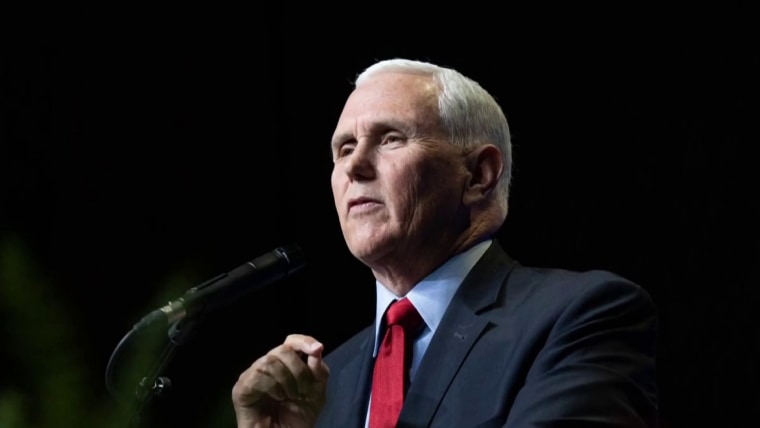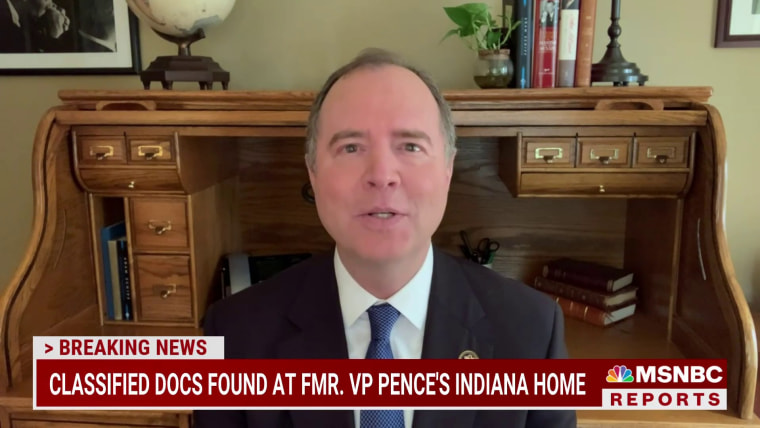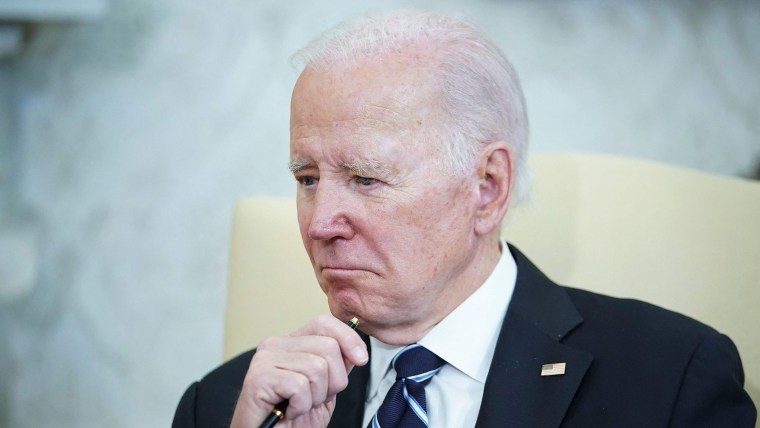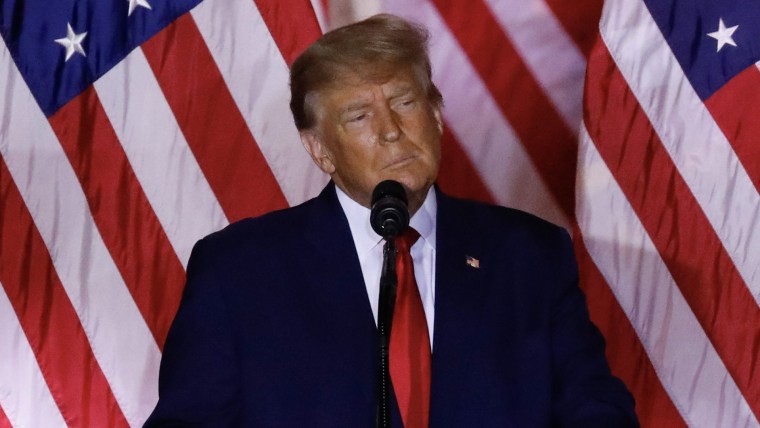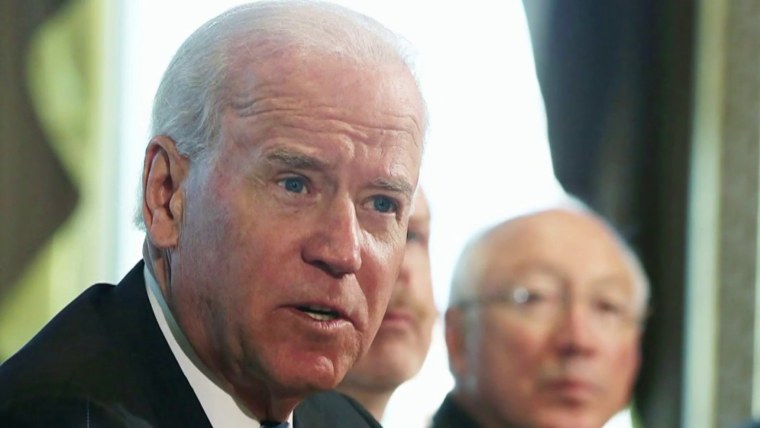[ad_1]
The U.S. government’s system for labeling and tracking classified documents appears to be broken, with potentially serious consequences for the country’s national security, lawmakers, former officials and scholars said Tuesday.
News that classified documents were found at the private home of former Vice President Mike Pence marks the latest in a series of revelations involving both the Trump and Obama administrations, raising questions about how the government labels material as secret and how it manages those documents, including after a president leaves office.
Democratic and Republican lawmakers said there was a “systemic failure” if both the Obama and Trump administrations could not keep track of classified documents after their tenures ended.
“What the hell is going on around here is my reaction,” said Sen. Marco Rubio of Florida, the ranking Republican on the Intelligence Committee. “Look, obviously there is a systemic problem in the executive branch. Talking about two successive administrations from two different parties with officials at the top level having in their possession documents in places where they don’t belong.”
Sen. Rick Scott, R-Fla., said: “Nobody is above the law. I don’t know how anybody ends up with classified documents. Everybody ought to explain how they end up with classified documents.”
The aides and officials charged with ensuring secret documents are always in a “chain of custody” appear to be falling down on the job, said a scholar of intelligence issues, Loch Johnson, a professor emeritus of public and international affairs at the University of Georgia.
“It’s their job to make sure these busy policymakers understand the importance of classification and return the documents to their proper place,” said Johnson, who was a congressional aide on intelligence committees and advised previous administrations about intelligence matters.
“There’s an incredible amount of sloppiness in the handling of these documents that’s really quite disconcerting,” Johnson said. “We need some stiff penalties for people in the chain of custody who don’t take their jobs seriously enough.”
White House staff members are supposed to log every classified document, assign it a number and keep track so the document can be accounted for at all times. Former officials say the process unraveled somewhat during the Trump administration, because of the president’s habits and some inexperienced staff members. But supporters of the former president have denied that portrayal.
In Congress, lawmakers and staff members with clearances have to follow strict rules and look through material in secure rooms.
“When I read a document, I have to sign for it, and I have to return it before I leave there,” said Sen. Bob Menendez, D-N.J., the chairman of the Foreign Relations Committee.
“What has to be looked at is the whole nature of what is classified and what is not, and under what circumstances.”
“But until that happens,” he said, “it should be such that they are preserved in places that create no risk to national interests or security.”
Elizabeth Goitein, a national security law expert at the Brennan Center for Justice, a think tank at New York University School of Law, said the root of the problem is the sheer volume of material that is stamped as secret, overwhelming the White House and federal agencies trying to make decisions and govern.
“You have 50 million classification decisions each year — 90% of which are probably unnecessary. That’s a lot of rules that have to be complied with every hour of every day. And some of that is going to slip,” said Goitein, a leading expert on overclassification.
Presidential transitions, particularly hasty transitions, can worsen the challenge of managing sensitive government documents, she said.
“I think the chain of custody becomes much more problematic in the context of a presidential transition. That may be part of what we’re seeing here, especially when those transitions are rushed,” Goitein said.
Democratic Rep. Adam Schiff of California, the former chair of the Intelligence Committee, told NBC News’ Andrea Mitchell that “there also needs to be a view of what happens when people leave that office, the presidency and vice presidency.”
Lawmakers from both sides of the aisle said the fallout from failing to track secret documents had worrisome ramifications for national security.
“We clearly don’t have an effective management system to oversee where classified documents go and how they’re retrieved,” said Sen. Mitt Romney, R-Utah. “And look, sloppiness doesn’t look good on a president or a vice president, either current or past, and it’s an embarrassment to us, and it’s a potential threat to national security.”
Sen. Sheldon Whitehouse, D-R.I., said the executive branch has at times abused the power to classify and declassify documents. Executive branch officials will strategically declassify certain documents, for example, when doing so gives them the upper hand in dealing with congressional oversight, Whitehouse said.
In such cases, he said, “the legislative branch is unable to respond in kind, because the rebuttal is classified.”
“Perhaps one good thing that comes out of this mess is we do a review of what is clearly a defective process and one that is often used for strategic advantage against legislative oversight,” Whitehouse said.
Goitein and others said the recent discoveries of classified documents present a political opportunity for the White House, and possibly Congress, to at last tackle the problem.
For decades, current and former officials and Congress have warned about the growing problem of labeling too much information secret, or “overclassification.”
In 2004, the 9/11 Commission Report, which examined how the federal government failed to heed danger signs before the attacks of Sept. 11, 2001, warned that “current security requirements nurture overclassification.”
Successive presidents have issued executive orders to try to rein in the practice, as well as to speed up the declassification of older documents. But material related to the 1961 Bay of Pigs fiasco was not declassified until more than 50 years later. Some documents related to the 1963 assassination of President John F. Kennedy were released only recently, and others remain classified.
“There’s classified, and then there’s classified,” former President Barack Obama said in 2016. “There’s stuff that is really top secret top secret, and there’s stuff that is being presented to the president or the secretary of state that you might not want on the transom or going out over the wire but is basically stuff that you could get in open source.”
Goitein and others have proposed standardizing and simplifying the rules for classification and limiting the discretion of those who make classification judgments. Goitein has called for introducing penalties for officials who unnecessarily label material secret. At the moment, the overwhelming incentive for the federal bureaucracy is to label information secret, experts said.
Critics of the classification system have long argued that by branding an unmanageable amount of information secret, the government ultimately could put at risk genuine secrets that need to be safeguarded.
In 1997, the late Sen. Daniel Patrick Moynihan, D-N.Y., oversaw a bipartisan report recommending reducing secrecy in government while ensuring the protection of sensitive information vital to the country’s national security.
“The best way to ensure that secrecy is respected, and that the most important secrets remain secret, is for secrecy to be returned to its limited but necessary role,” the report said. “Secrets can be protected more effectively if secrecy is reduced overall.”
Moynihan’s recommendations were not enacted.
[ad_2]
Source link

